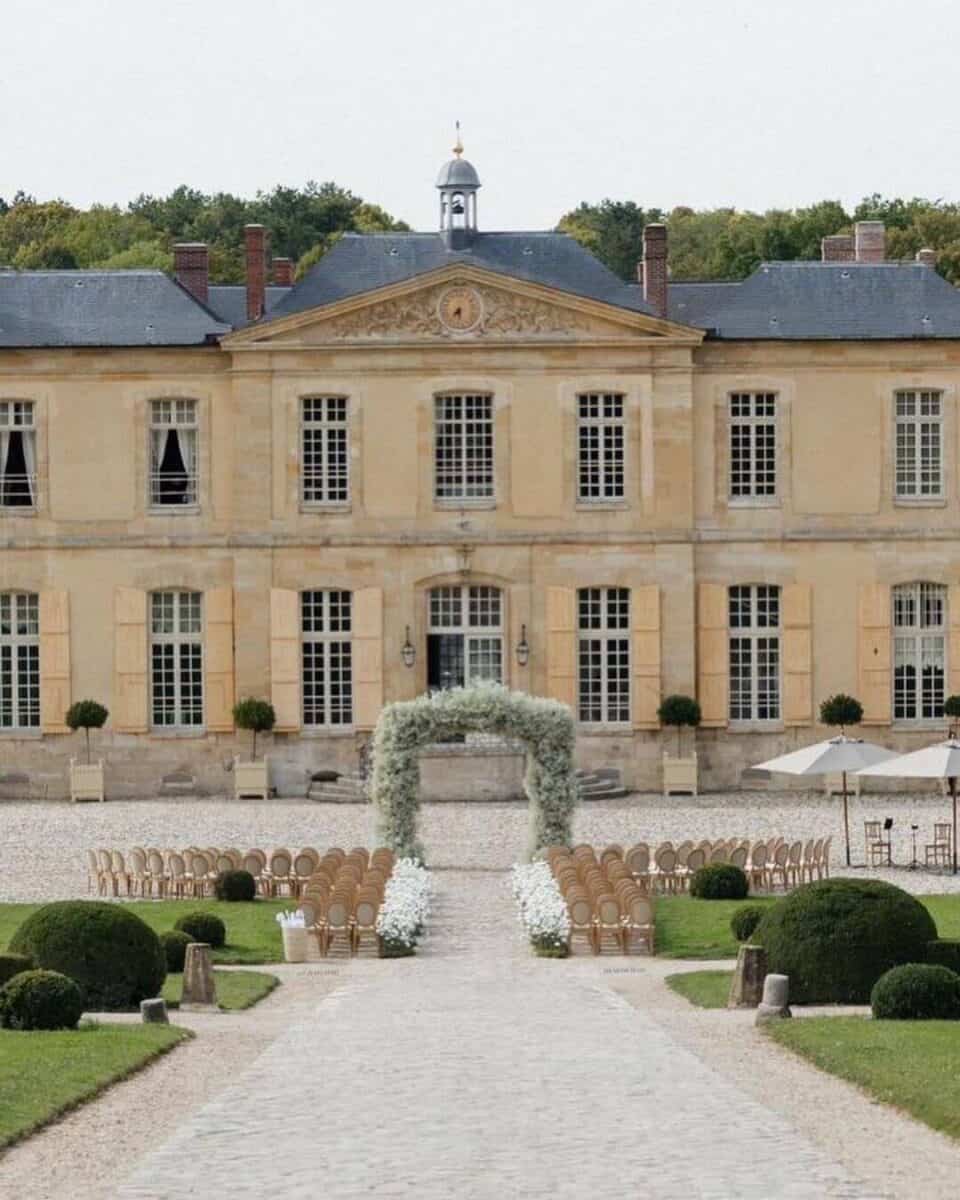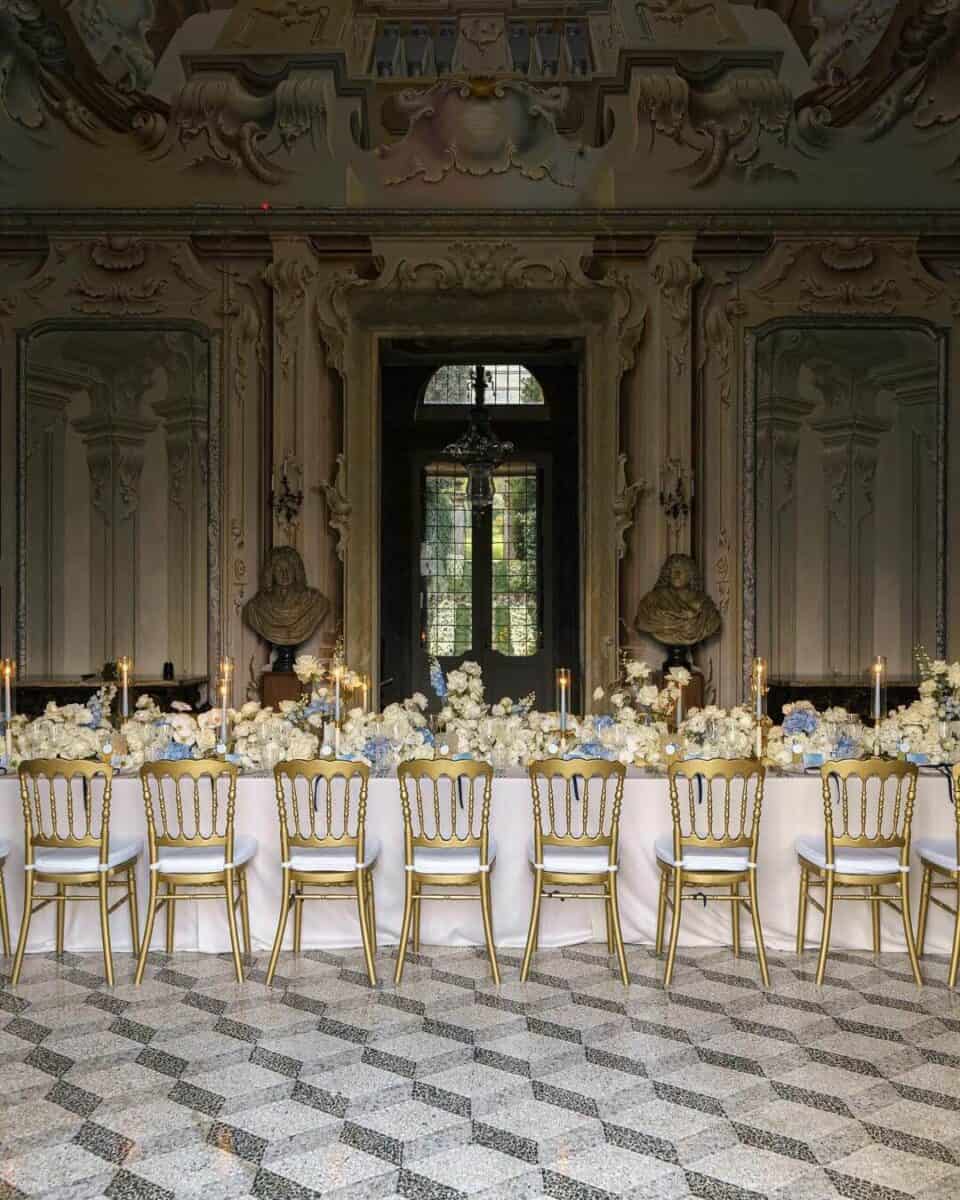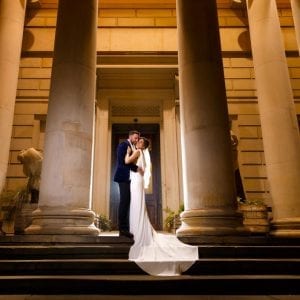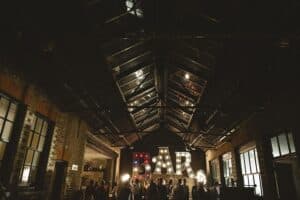When it comes to planning your dream wedding, the venue is often one of the biggest, and most exciting, decisions you’ll make.
But before you sign that contract and start envisioning your big day in a beautiful setting.
Let’s talk about something I see couples overlook far too often: hidden costs.
These are the sneaky expenses that can pop up when you least expect them, and if you’re not prepared, they can throw your budget way off track.
Still looking for you perfect venue? Head to out wedding venue guide now! Full of top tips, expert advice and all the top wedding venues for each city!

Top Hidden Wedding Venue Costs
1. Service Charges and Taxes
It’s easy to look at the venue’s base price and think you’re in the clear, but don’t forget about service charges and taxes.
These can add up quickly and are often not included in the initial quote.
A service charge, which can range anywhere from 15% to 25%, is typically added to cover things like staff wages, but it’s not always clearly communicated upfront.
Add taxes on top of that, and suddenly your $10,000 venue is costing you closer to $12,000.
2. Extra Hours and Overtime Fees
I’ve seen it happen time and again: couples plan for a six-hour reception, but the party’s going strong and they don’t want to stop.
Extending the venue rental by just an hour or two can be a great option but does come at a cost.
Always ask about the venue’s policy on overtime. Some venues charge by the hour, while others may have a flat fee that can be quite expensive.
It’s smart to budget a little extra just in case you want to keep the celebration going.
3. Required Vendor Fees
Some venues have a preferred vendor list, which can be both a blessing and a curse.
While it’s great to have vetted professionals, these vendors often come with higher price tags.
In some cases, venues charge a fee if you choose to bring in outside vendors not on their list.
This is a cost that can catch couples off guard. Be sure to ask about any restrictions or fees related to vendors before you commit to a venue.
4. Decor and Setup Costs
That beautiful blank canvas of a venue you fell in love with?
It might require more decor than you initially thought to bring your vision to life.
I always tell couples to consider the cost of lighting, draping, flowers, and other decor elements.
Additionally, some venues charge extra for setup and breakdown services.
This is especially common if you’re bringing in a lot of rentals like furniture, specialty lighting, or unique decor pieces.

5. Corkage and Cake-Cutting Fees
These fees can feel like a real sting, especially if you’ve found the perfect wine or a cake from your favourite bakery.
Corkage fees apply if you bring in your own alcohol, and they can range from a few dollars to upwards of $20/£20 per bottle.
Similarly, cake-cutting fees are charged per slice if you’re bringing in a cake from an outside bakery in some venues!
These little extras can add up to hundreds, if not thousands, so it’s crucial to ask about them upfront.
6. Insurance and Permits
Many venues require couples to purchase liability insurance, which typically covers accidents and damages during your event.
While not exorbitantly expensive, it’s an added cost that many couples don’t anticipate.
Additionally, depending on the location and the specifics of your wedding (especially for outdoor or unconventional venues), you might need special permits, which can also add to your overall expenses.
7. Power and AV Equipment
If your wedding involves a lot of sound equipment, lighting, or even just a slideshow of memories, you might need additional power or AV equipment.
Some venues charge for the use of their power outlets, extension cords, or AV systems.
Others might require you to bring in your own equipment, which can be a costly addition if you’re not prepared.
8. Gratuities
Even if a service charge is included, gratuities might not be. It’s customary in some countries to tip the waitstaff, bartenders, and other service providers at your wedding.
These tips can add up, so make sure you’re accounting for them in your budget.
It’s always better to overestimate and have a little extra set aside than to scramble at the last minute.
9. Linens and Tableware Upgrades
The elegant tablecloths, stylish runners, and perfectly coordinated napkins you see on display during your venue visit? They might not be included in your basic package.
Many venues provide standard white or ivory linens and basic tableware as part of the deal, but if you want something more luxurious—think specialty fabrics, unique colours, or fine China—you’ll likely need to pay extra.
These upgrades can significantly enhance the look of your reception, but they can also add up quickly, so be sure to clarify what’s included and what’s considered an upgrade.
10. Food and Drink Upgrades
If your venue includes catering, it’s crucial to understand what’s included in the package and what might cost extra.
For example, the standard menu might cover basic options, but if you’re looking for a gourmet dining experience, specialty dishes, or a wider variety of hors d’oeuvres, you may need to pay for those upgrades.
Similarly, premium drink selections, champagne toasts, and signature cocktails can all add to your final bill.
These upgrades are often where couples find themselves unexpectedly over budget, so it’s essential to discuss all food and drink options in detail during your planning.
The Bottom Line
I always advise couples to set aside a portion of their budget, say 10% to 15%, for unexpected costs. More if you are having a dry hire venue.
Even when you think you’ve accounted for everything, these hidden expenses can sneak up on you.
At the end of the day, venues are businesses, and these extra costs are part of how they operate.
By being aware of these potential expenses and planning for them, you can avoid any nasty surprises and enjoy your special day without financial stress.
If there’s one piece of advice I could give, it’s this: Always ask detailed questions and make sure you understand the full scope of what you’re committing to when you sign that venue contract.
It might seem overwhelming now, but your future self (and your bank account) will thank you!
More blogs you will love!
- How Much of My Budget Should I Really Be Spending on My Venue?
- Should You Consider a Venue with an All-Inclusive Package? The Benefits and Drawbacks
- What to Look for in a Venue Contract: Key Clauses and Red Flags
- How to Negotiate with Your Wedding Venue for the Best Deal
- The Hidden Costs of Wedding Venues: What to Watch Out For
- The Most Common Mistakes Couples Make When Choosing Their Wedding Venue (and How to Avoid Them!)
- Different types of Urban wedding venues
- 19 Art Galleries That Transform Into Romantic Wedding Venues
- 29 Spectacular Warehouse Wedding Venues for an Edgy Celebration








